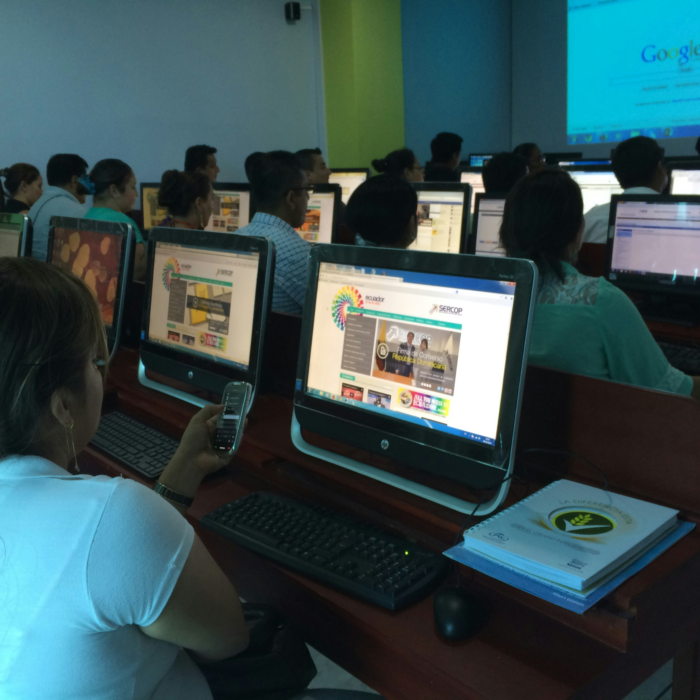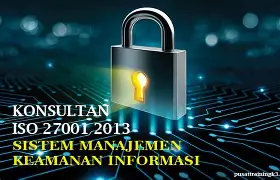Introduction to Business Education
Business education plays a crucial role in shaping the entrepreneurial ecosystem by equipping individuals with essential knowledge and skills that are fundamental to achieving success in various business endeavors. The modern business landscape is characterized by rapid technological advancements, changing market dynamics, and an increasing need for innovative solutions. Amid these changes, it is imperative for entrepreneurs to cultivate a solid educational foundation that fosters not only a deep understanding of business principles but also the ability to think creatively and adapt to evolving circumstances.
Education in business provides entrepreneurs with insights into key areas such as finance, marketing, operations, and strategic management. These disciplines create a holistic understanding of how to effectively manage resources and maximize opportunities. Additionally, business education encourages critical thinking, problem-solving, and collaboration among peers, all of which are vital components for nurturing innovation. By engaging with theories and real-world applications, entrepreneurs can enhance their capacity to generate ideas and implement them in practical scenarios.
The integration of entrepreneurship-focused curricula in higher education institutions serves as a catalyst for creativity. Programs that emphasize experiential learning, such as internships, case studies, and entrepreneurial projects, enable students to apply their knowledge in real-life contexts. Exposure to diverse perspectives in these learning environments contributes significantly to creative thinking, encouraging budding entrepreneurs to explore unconventional ideas and solutions.
In essence, business education establishes a foundation for fostering innovation awareness and creativity among entrepreneurs. By investing time and resources into their education, entrepreneurs are better equipped to navigate the complexities of the market, recognize emerging opportunities, and drive change within their industries. As entrepreneurship continues to evolve, the relevance of sound business education remains paramount for those aspiring to make their mark in the business world.
The Importance of Innovation in Business
Innovation plays a critical role in the success of businesses, particularly for entrepreneurs striving to establish and maintain a competitive edge in their respective industries. In a rapidly changing economic landscape, the ability to create new ideas, products, or processes is essential for meeting evolving market demands. Entrepreneurs who prioritize innovation are more likely to adapt effectively to changes, ensuring their ventures remain relevant and viable.
One of the primary benefits of innovation is the potential for competitive advantage. By developing unique solutions or enhancing existing offerings, businesses can differentiate themselves from competitors, attracting customers who seek fresh alternatives. This differentiation is instrumental in building brand loyalty and ultimately drives sales growth and profitability. Additionally, innovation can lead to increased operational efficiency, reducing costs and improving the overall effectiveness of business operations.
The dynamic nature of the modern economy emphasizes the necessity for entrepreneurs to embrace innovation as a core aspect of their business strategy. Markets evolve rapidly, influenced by technological advancements and shifting consumer preferences. To thrive in such an environment, understanding the importance of innovation becomes paramount. Those who ignore the need for innovation may find themselves unable to keep pace with competitors who are more willing to take risks and explore new opportunities.
Furthermore, fostering a culture of innovation within an organization empowers teams to think creatively and contribute ideas that can lead to breakthroughs. This approach not only encourages employee engagement but also enhances collaboration, allowing diverse perspectives to generate innovative solutions. As businesses face increasing challenges and uncertainties, embracing innovation is not merely a choice but a necessity for survival and growth.
Fostering Creativity in Business Education
Business education plays a pivotal role in developing the entrepreneurial mindset, particularly in fostering creativity, which is essential for innovation. One effective approach to instilling creativity is through the incorporation of active learning strategies. Instead of traditional lectures, educators can engage students in hands-on projects, collaborative work, and scenario-based learning, allowing them to apply theoretical knowledge in practical situations. This method not only stimulates creativity but also encourages critical thinking, problem-solving, and teamwork among aspiring entrepreneurs.
Another important aspect of fostering creativity in business education is the integration of diverse perspectives and disciplines. By incorporating various subject matters, such as art, science, and technology, educators can help students recognize the interconnectedness of ideas and inspire innovative thinking. For instance, case studies that involve cross-industry collaboration can reveal unique solutions and demonstrate how creative ideas can stem from seemingly unrelated sectors.
Creating an immersive learning environment is also essential for promoting creativity. Educators should aim to establish a space where students feel safe to express their ideas without the fear of judgment. Facilitating brainstorming sessions, idea incubators, and workshops can inspire students to think outside the box. Additionally, incorporating technology tools, such as digital collaboration platforms and design software, can enhance the creative process and allow students to visualize their concepts in real time.
Finally, it is vital for business education programs to emphasize the value of failure as a learning opportunity. Encouraging students to embrace setbacks as part of the creative process can cultivate resilience and a growth mindset. By understanding that not all ideas will be successful, students can become more willing to explore unconventional solutions and take calculated risks in their entrepreneurial endeavors. Overall, by utilizing innovative teaching methods and creating a supportive atmosphere, business education can significantly foster creativity among future entrepreneurs.
Curriculum Development for Innovation Awareness
In the realm of business education, fostering innovation awareness is a pivotal goal that necessitates a well-rounded curriculum. An effective curriculum should encompass a variety of components designed to enhance students’ understanding of innovation and creativity in a business context. One essential element is the integration of case studies, which provide learners with real-world examples of innovative practices and strategies. Through the analysis of these case studies, students can observe how established companies respond to challenges and leverage opportunities for innovation.
Furthermore, hands-on projects play a critical role in cultivating innovation awareness among aspiring entrepreneurs. By engaging in practical assignments that require them to develop innovative solutions to actual business problems, students can apply theoretical concepts learned in lectures. These projects not only promote creative thinking but also encourage collaboration among peers, which is vital in any entrepreneurial environment. Such collaborative projects can simulate real-world business scenarios where diverse perspectives contribute to innovative outcomes.
Equally important is the collaboration with industry partners, which allows students to bridge the gap between academic theory and practical application. Partnering with local businesses or startups provides students with invaluable insights into the operational aspects of fostering innovation. Guest speakers from various fields can offer unique perspectives on how they approach creative problem-solving, thus enriching the educational experience. By incorporating these industry interactions, students can gain a comprehensive understanding of current market trends and the skills needed to build innovative and competitive businesses.
In essence, a curriculum designed for innovation awareness should systematically integrate case studies, hands-on projects, and industry collaboration. This holistic approach not only nurtures creativity and innovative thinking but also equips future entrepreneurs with the skills necessary to succeed in an ever-evolving business landscape.
Real-world Applications and Experiential Learning
In the realm of business education, the integration of real-world applications and experiential learning has emerged as a crucial component for developing innovative thinkers and creative entrepreneurs. Practical learning experiences, such as internships, workshops, and real-life entrepreneurial projects, serve to bridge the gap between theoretical concepts and their actual implementation. By immersing students in authentic business environments, these experiences provide invaluable insights that foster a deeper understanding of the complexities involved in innovation.
Internships play a pivotal role in this educational approach by offering students hands-on experience in a professional setting. Through internships, aspiring entrepreneurs can observe and participate in the day-to-day operations of businesses, gaining practical skills and insights that are often lacking in traditional classroom settings. This exposure to real-world challenges enables students to identify innovative solutions and develop a creative mindset essential for navigating the complexities of the entrepreneurial landscape.
Workshops represent another vital aspect of experiential learning in business education. These interactive sessions typically involve case studies, simulations, and group activities that encourage collaboration and problem-solving. By engaging with peers and industry professionals, students can explore various aspects of entrepreneurship, experiment with different approaches, and learn directly from the experiences of others. Such hands-on engagement not only enhances their understanding of innovation but also cultivates a network of like-minded individuals who may support future entrepreneurial endeavors.
Furthermore, real-life entrepreneurial projects allow students to apply their knowledge in a controlled environment while tackling contemporary business challenges. This facet of experiential learning instills confidence and provides a platform for creative expression. By working on projects that require innovative thinking and creative problem-solving, students can cultivate the skills necessary to launch successful ventures. Overall, the significance of practical learning experiences in business education cannot be overstated, as they are instrumental in nurturing innovative thinkers and creative entrepreneurs.
Role of Mentorship in Entrepreneurial Education
Mentorship plays a crucial role in entrepreneurial education, especially in fostering innovation awareness and nurturing creativity among aspiring entrepreneurs. Experienced mentors provide invaluable guidance and support, helping new entrepreneurs navigate the complex landscape of starting and managing a business. This relationship not only facilitates the transfer of knowledge but also encourages fresh perspectives and innovative thinking.
Mentors, often seasoned professionals with extensive experience in various industries, share insights that can significantly influence an entrepreneur’s approach to problem-solving. They help budding entrepreneurs identify gaps in the market and develop unique solutions that can lead to innovative products or services. Additionally, mentorship can enhance creative thinking by fostering an environment where new ideas are encouraged and explored in depth. This is vital, as creativity is often the driving force behind successful entrepreneurial ventures.
The mentor-mentee relationship also provides a safe space for aspiring entrepreneurs to test their ideas. Feedback from a mentor can illuminate potential pitfalls and highlight opportunities that the entrepreneur may have overlooked. Furthermore, mentors often provide access to a broader network, facilitating connections with other professionals, potential partners, and investors that are essential for growth and innovation.
Incorporating mentorship into entrepreneurial education programs can lead to higher success rates among startups. Educators and institutions should prioritize establishing mentorship networks that connect seasoned entrepreneurs with students and new business owners. These interactions can cultivate a cycle of innovation and creativity, ultimately benefiting the entire entrepreneurial ecosystem.
Thus, the role of mentorship in shaping innovative and creative entrepreneurs cannot be overstated. It empowers individuals with the knowledge, resources, and confidence required to turn their ideas into reality, contributing significantly to the overall landscape of entrepreneurship.
Challenges and Solutions in Business Education
Business education plays a crucial role in shaping future entrepreneurs, especially in fostering innovation awareness and creativity. However, numerous challenges hinder its effectiveness in achieving these goals. One of the most significant barriers is the reliance on traditional teaching methods, which may prioritize rote learning over critical thinking and problem-solving skills. Such methodologies often fail to engage students in real-world scenarios that require innovative approaches.
Another challenge is the resistance to change within educational institutions. Many business schools have established curricula that do not adapt to the rapidly evolving market needs or technological advancements. This stagnation can limit students’ exposure to the latest trends in innovation and creativity, leaving them unprepared for the dynamic environment they will face in their entrepreneurial endeavors.
To address these challenges, educational institutions must adopt more interactive and experiential learning techniques. Project-based learning, for example, allows students to work on real-life problems, encouraging them to think outside the box and develop creative solutions. Additionally, collaboration with industry professionals can provide valuable insights and mentorship, bridging the gap between academic knowledge and practical application.
Furthermore, integrating technology into the curriculum can enhance the learning experience. Utilizing digital tools and platforms for simulations or online collaboration can inspire students to experiment and innovate. Schools should also promote a culture of feedback and continuous improvement, where students can learn from failures and iterate on their ideas.
By embracing these practical solutions, business education can effectively overcome the challenges it faces, thereby nurturing a generation of entrepreneurs equipped with the creativity and innovative mindset essential for success in today’s competitive landscape. In light of these considerations, it becomes imperative for educational institutions to evolve and adapt their methodologies to better prepare students for the entrepreneurial journey ahead.
Case Studies of Successful Innovative Entrepreneurs
Entrepreneurs often represent the vanguard of innovation, and studying their journeys provides invaluable insights into how education can facilitate creativity and foster unique business models. A prime example is Elon Musk, whose formal education in physics and economics from the University of Pennsylvania equipped him with analytical skills critical for his ventures. Musk’s diverse educational background has played a crucial role in driving innovation within multiple industries, including electric vehicles with Tesla and space exploration with SpaceX. His commitment to intertwining education with practical applications exemplifies how entrepreneurs can leverage academic knowledge to innovate.
Another illustrative case is Sara Blakely, the founder of Spanx. Her journey began not in a business school but rather in the field of sales. However, the business acumen and problem-solving skills she developed in her education helped her identify market gaps. Blakely’s ability to think creatively allowed her to revolutionize women’s shapewear, proving that formal education is not the only pathway to innovation. Indeed, Blakely’s story underscores the notion that diverse educational experiences, whether formal or experiential, can ignite creativity among entrepreneurs.
Moreover, consider the case of Jeff Bezos, whose educational background includes a degree in electrical engineering and computer science. Bezos utilized his skills to launch Amazon, initially starting as an online bookstore. His understanding of technology and customer needs was crucial to pioneering e-commerce innovations. Amazon’s evolution from a simple retail platform to a multifaceted enterprise underscores the impact of having a strong educational foundation paired with a bold entrepreneurial vision.
These case studies not only highlight the correlation between education and innovation but also illustrate that successful entrepreneurs often combine conceptual learning with practical experience. Their stories inspire many aspiring business leaders to cultivate their educational journeys as a catalyst for creativity and innovation in their respective fields.
Conclusion: The Future of Business Education
As the landscape of entrepreneurship continues to evolve in response to rapid technological advancements and shifting market dynamics, the role of business education in fostering innovation and creativity has never been more critical. Educational institutions and programs must adapt to meet the demands of a global marketplace characterized by constant change and increased competition. This adaptation requires a collaborative effort among educators, industry leaders, and policymakers to ensure that curriculums are not only relevant but also forward-thinking.
Business education should emphasize a multidisciplinary approach, integrating knowledge and skills from various fields, including technology, design, and behavioral sciences. By doing so, aspiring entrepreneurs can cultivate a more holistic understanding of innovation processes and creativity. Implementing experiential learning opportunities, such as internships, workshops, and hackathons, will further enrich students’ experiences and better prepare them for real-world challenges.
Moreover, fostering an entrepreneurial mindset involves encouraging critical thinking, problem-solving, and adaptability among students. Educational institutions can play a pivotal role in instilling these attributes by promoting a culture of experimentation and risk-taking within the classroom. By celebrating both successes and failures as learning opportunities, educators can empower future entrepreneurs to navigate uncertainties with confidence.
Furthermore, the integration of technology in business education is essential for equipping future leaders with the tools necessary to leverage digital innovation. Familiarity with emerging technologies, data analytics, and digital marketing strategies will enhance the ability of entrepreneurs to innovate and remain competitive. As we move forward, it is imperative that business education evolves alongside these transformations, ensuring that upcoming generations are well-prepared to tackle the complexities of the modern economy.
How useful was this post?
Click on a star to rate it!
Average rating 0 / 5. Vote count: 0
No votes so far! Be the first to rate this post.









